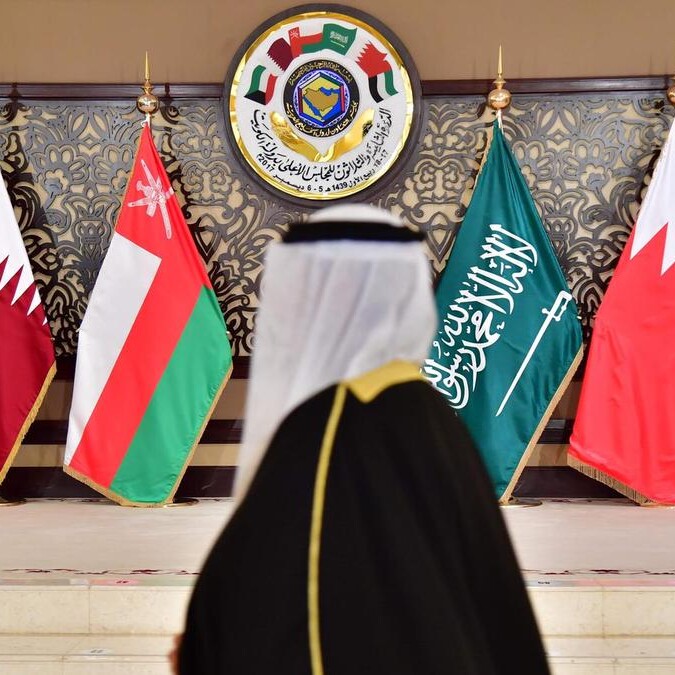The years between the collapse of the Soviet Union and the 9/11 attacks are largely thought of as a footnote to history—one eventually interrupted by Islamist terrorism, economic crisis, and genuine geopolitical competition from China and Russia. The meager legacy of Washington’s military intervention in Kosovo is a case in point: It is seen as a brief, successful, and low-stakes war, remembered as insignificant when it’s remembered at all—which it rarely is by Americans, even as the war’s 20th anniversary approaches in March.
The consensus, however, is wrong. The Kosovo war was short (just three months), but it wasn’t small. In fundamental ways, it was a turning point for international politics.
The crisis pitted military forces led by Serbian President Slobodan Milosevic, already infamous for his murderous actions in the Bosnian conflict, against ethnic Albanian Kosovar insurgents, who resented growing repression in the province. In March 1999, fighting intensified, Kosovo’s neighbors were flooded with refugees, and the West got involved. When Milosevic ignored demands for a negotiated solution, NATO used force. After 78 days of bombing, Serbian troops withdrew, and NATO ground troops moved in.
The war started a conversation about humanitarian intervention that continues to this day. The agonized policy debates in recent years about entering Syria and Libya to oppose brutal dictators are reprisals of concerns first raised in the Balkans.
At the time, British Prime Minister Tony Blair openly described the intervention in Kosovo as “a battle between good and evil; between civilisation and barbarity; between democracy and dictatorship.” But the story was hardly so pure. The case for humanitarian intervention under international law was based on preventing more Serb atrocities, but in practice that meant supporting the Kosovo Liberation Army (KLA)—a group that U.S. officials had previously described as terrorist. It was fighting for full independence rather than Washington’s more limited goal of political autonomy. U.S. officials were aware that moralistic rhetoric cloaked political risks: Intelligence agencies privately warned that the KLA was trying to provoke Serbian massacres in hopes of persuading NATO to support its bid for independence.
Kosovo also raised serious new concerns about NATO’s military utility that echo loudly today.
NATO’s European members hindered the war effort even from its earliest stages. When Gen. Wesley Clark, NATO’s top commander at the time, briefed allies in July 1998 on the plan drawn up by the U.S. military, which included going after the “head of the snake” by bombing Belgrade, skittish European officials believed it was “too large, too threatening” and demanded more limited options. NATO settled on only a small number of military targets in Kosovo itself—and Europeans at the highest levels of national governments insisted that they be allowed to sign off on the targets.
Milosevic then seized the advantage to ramp up the ethnic cleansing of Albanians. Only when the United States, two months into the war, insisted on a change in strategy—bombing targets deep in Serbian territory—did the momentum shift. Americans also picked up an increasing share of the operational slack, not least because of the wide gap in capabilities between U.S. and other NATO air forces. By the war’s end, the United States had conducted about two-thirds of all sorties while undertaking the majority of reconnaissance, suppression of air defenses, and precision-guided strikes.
For the United States, NATO’s contribution to the war was mostly political—it helped create and maintain public support among Americans for the campaign. In military terms, however, the allies were mostly dispensable. This experience laid the groundwork for later instances of unilateralism, including the George W. Bush administration’s decision to forgo seeking NATO’s backing before its invasion of Iraq and President Donald Trump’s outright threats against Europe for its overreliance on the U.S. military for its own defense.
The Kosovo war also foreshadowed the return of great-power politics, spurring the rise of revanchist nationalism in both Russia and China that the West contends with today.
Although Russia has traditionally been a Serbian ally, the Kremlin initially positioned itself as the West’s partner in finding a solution to the crisis. The bargain was both instrumental (Russia’s economic troubles made it dependent on foreign assistance) and strategic: President Boris Yeltsin believed Russia could cooperate with Western institutions in maintaining global order. Russian diplomats even communicated to their Western counterparts that, although they would veto any U.N. Security Council resolution approving a war, they had nothing against airstrikes. As Richard Holbrooke, a U.S. diplomat, once said, “For them, it was all about respect.”
Cameron Abadi
articolo pubblicato su Foreign Policy
Redazione
La redazione di Babilon è composta da giovani giornalisti, analisti e ricercatori attenti alle dinamiche mondiali. Il nostro obiettivo è rendere più comprensibile la geopolitica a tutti i tipi di lettori.
Germania in panne. Che ne sarà del modello tedesco
4 Feb 2025
A pochi giorni dalle elezioni tedesche Paesi Edizioni, la casa editrice basata a Roma specializzata nella saggistica…
L’Europa non ha mai smesso di importare gas dalla Russia
31 Gen 2025
Le importazioni di gas russo, sia attraverso linee di tubature che in forma liquefatta, verso il mercato europeo non…
Il bivio tra democrazia e dittatura
19 Nov 2024
L’economista Giorgio Arfaras, in libreria dal 1° novembre con il saggio Filosofi e Tiranni, edito da Paesi Edizioni. Il…
Come fare impresa nel Golfo
16 Ott 2024
Come aprire una società in Arabia Saudita? Quali sono le leggi specifiche che regolano il business nel Paese del Golfo…




